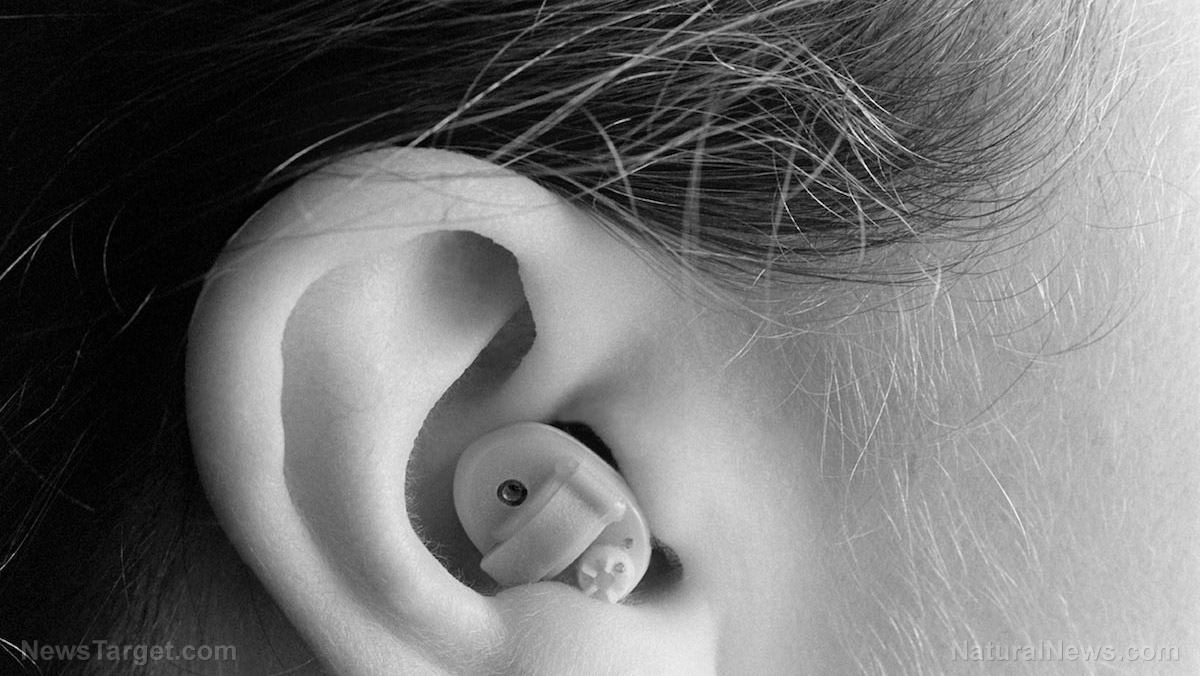Poor nutrition in early childhood linked to hearing loss
03/03/2018 / By Zoey Sky

According to a recent study, adolescents who were undernourished as preschool children were at least twice as likely to suffer from hearing loss, unlike peers who were better-nourished.
Scientists from the Johns Hopkins Bloomberg School of Public Health looked into the link between the hearing of over 2,200 adolescents in Nepal and their nutritional levels as children 16 years prior. The results imply that enforcing nutritional interventions in South Asia could help prevent hearing loss, which is a condition that currently affects at least 116 million youngsters in the region.
Hearing loss is the fourth leading cause of disability around the globe. At least 80 percent of patients with hearing loss are from low- and middle-income countries. Prevalence estimates of hearing impairment in adolescents from South Asia includes at least 14 to 28 percent of the population.
Keith West Jr., a professor of International Health at Bloomberg and the principal investigator of the study, explains that with their findings, it will be easier to bring much-needed attention to hearing loss, which remains a neglected public health concern. He adds that nutrition interventions in early childhood can help prevent this health condition. Dr. Susan Emmett, an otolaryngologist who conducted the analysis and wrote the paper as a postdoctoral fellow at the Bloomberg School’s Center for Human Nutrition, was also the lead author of the study. (Related: Poor nutrition leaves 200 million children “intellectually stunted.”)
For the study, the scientists tested the hearing of more than 2,200 adolescents from 2006 to 2008. The participants were also part of a nutrition trial that took place from 1989 and 1991 in the District of Sarlahi in Nepal which gathered data that was used to determine their nutritional status.

Based on the results of the auditory tests, the young adults who were stunted (or too short for their age) during childhood “were nearly twice as likely to show signs of hearing loss.” Stunting is a chronic condition of undernourishment that usually begins before birth, which is a crucial time for auditory function development.
The scientists posit that when undernutrition causes a delay in inner ear development, especially when the infant is still in the womb, there is an increased risk of hearing loss.
Study participants who were too thin as children have twice the risk of hearing loss. Acute malnutrition, which refers to the “shorter, more severe periods of undernutrition,” usually results in children being too thin for their age. Acute malnutrition also increases a child’s vulnerability to infections, like in the ear. Repeated ear infections can cause hearing loss.
West stresses the importance of the study results, not only for the low-resource areas of Nepal but also for the majority of South Asia. He adds that the study site in Nepal also represents majority of South Asia’s Gangetic region. At least a whopping 160 million undernourished children live in the region, and they are at great risk for various health and developmental concernts. West is confident that the data they now have will help resolve this nutritional burden, and that it might even be used to prevent hearing loss as the children grow older.
Earlier studies have determined the connection between micronutrient deficiencies, such as vitamin A, to hearing impairment.
However, this study is the first to examine the link that connects generalized undernutrition and hearing loss. It is also the first to establish that early childhood nutritional status is a modifiable risk factor for hearing loss as children age.
Foods for improved hearing
To prevent hearing loss, it’s encouraged to incorporate the following nutrients in your diet:
- Magnesium – Magnesium and vitamins A, C, and E can help protect you from noise-related hearing loss. This could be because magnesium helps neutralize the effects of free radicals from loud noises. Magnesium also serves as a protective barrier for the sensitive hair cells in the inner ear. Sources include broccoli, potatoes, spinach, and tomatoes.
- Potassium – Potassium helps regulate the amount of fluid in the blood and body tissue. This can boost hearing health since fluid in the inner ear, the part of the ear that converts the noises we hear into electrical impulses that the brain interprets as sound, needs a lot of potassium. When we age, these levels drop naturally, and this could be linked to presbycusis (age-related hearing loss). Sources include apricots, bananas, melons, oranges, and potatoes.
- Zinc – Zinc helps boost your immune system, facilitates cell growth, and heals wounds. It can also help fight germs that cause the common cold and ear infections. Sources include beef, dark-meat chicken, peanuts, and oysters.
You can read more articles about nutrient-rich foods and other natural cures at Nutrients.news.
Sources include:
Submit a correction >>
Tagged Under:
#nutrition, acute malnutrition, children's health, food science, hearing, hearing impairment, hearing loss, malnutrition, nutrient deficiency, nutrients, undernutrition, underweight
This article may contain statements that reflect the opinion of the author





















